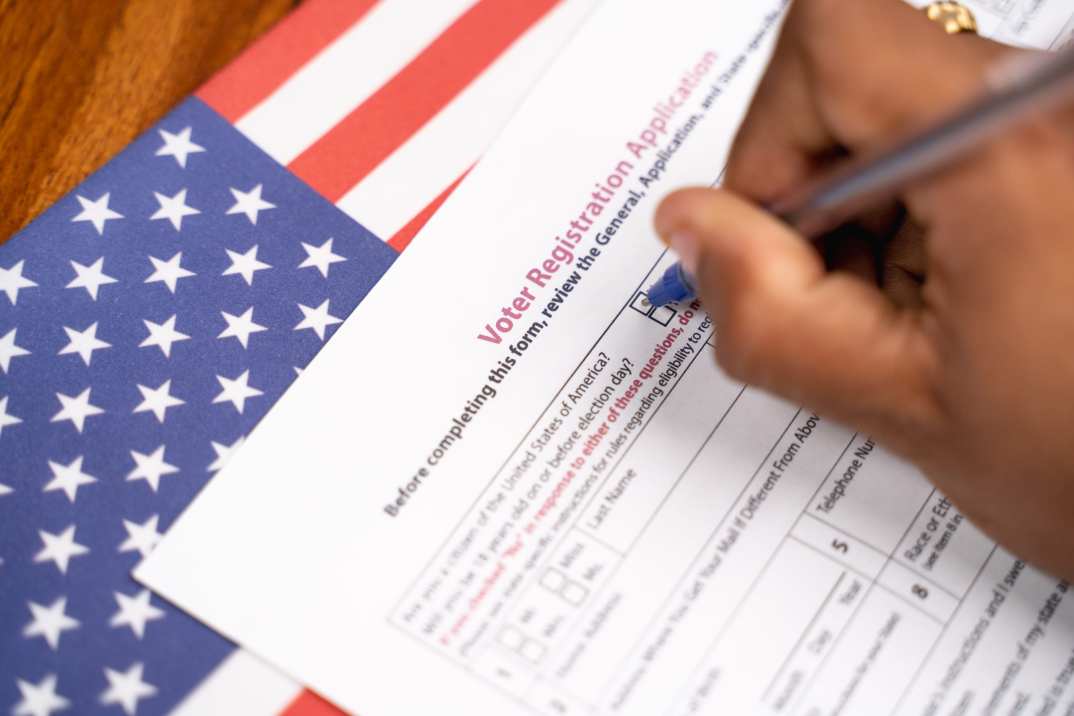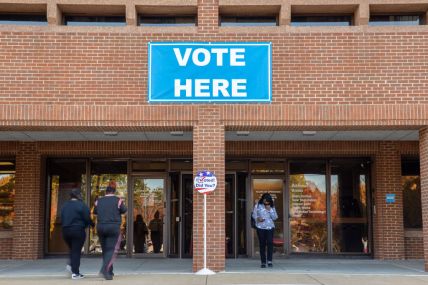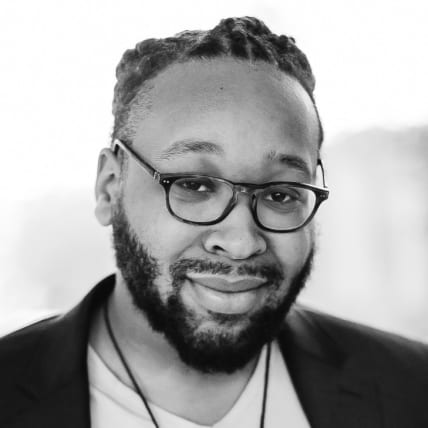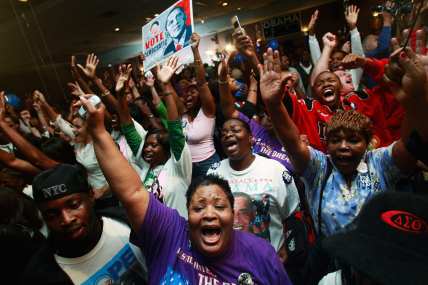Black people are being erased from democracy. Here’s a way to fight back and win.
OPINION: Millions of Black and Latino voters are missing or not listed correctly in voter databases. But organizing friends and families allows us to target voters that traditional campaigns and candidates ignore.

Editor’s note: The following article is an op-ed, and the views expressed are the author’s own. Read more opinions on theGrio.
Almost 25 million Black and Latino people are missing or not listed correctly in the voter databases sold by the political industry, according to new research by data analyst Miriam McKinney Gray. Every vote matters: Fewer than 80,000 people in three states made Donald Trump president in 2016. The erasure of Black voters and others from electoral databases poses a serious threat to our democracy and our future.
If you aren’t in the database, traditional campaigns will not contact you or give you information about an upcoming election. If you miss an election, you won’t be included in the database the next time. Campaigns rely on voter lists sold by the political industry, but database vendors keep us invisible and perpetuate the historical exclusion of Black communities from civic life.
But we don’t have to sit around and wait for traditional campaigns and the political class to fix this problem. Everyday people and grassroots organizations are finding missing Black voters and refusing to leave them behind.
Take the DeLoach family in Cincinnati. In the 29 days leading up to the November 2022 elections, this one family recruited more than 1,000 volunteers and found over 20,000 voters through friends and family organizing. No one else was looking for these Black and mostly young voters, but the DeLoaches made sure they were registered and helped them get to the polls.
Michelle DeLoach, a 23-year-old customer service representative, was initially indifferent to politics. But her mother, Ebony DeLoach, opened her eyes to the power local elected officials held over their family’s lives. Ebony’s son had an encounter with the criminal legal system during the 1990s. Since then, Ebony and her family have made it their mission to register new voters and engage infrequent voters, particularly those overlooked by traditional campaigns.
The stunning results of the DeLoach family exemplify the crucial role of Black leadership in building a multiracial democracy.
As the co-executive director of the Ohio Organizing Collaborative, I oversee one of the nation’s largest relational organizing programs. This approach involves individuals taking responsibility for reaching out to friends and family, ensuring everyone in their social network is registered to vote and turns out on Election Day. Compared to traditional campaigning methods, such as impersonal texts from strangers, relational organizing is more effective because people are more likely to take action when someone they know, like a cousin or a coach, personally encourages them.
Friends and family organizing allows us to target voters that traditional campaigns and candidates ignore. We must actively seek out Black voters, young voters, and first-time voters who have been historically excluded from the political process. In 2022, we discovered that 80-90% of the white people we reached through relational organizing were already listed in the voter file used by most progressive campaigns. Conversely, only 19-20% of the Black individuals we reached through our program were included in the existing voter file, a disparity in missingness that Gray documents nationwide.

Black votes do matter — if we vote
Without direct person-to-person contact, these individuals would be overlooked by candidates and campaigns. Technology has not resolved this issue and, in some ways, has perpetuated the systemic racism that has marginalized Black communities for centuries. Our solution lies in Black people engaging with and mobilizing other Black people.
The erasure of Black voters from databases is not an isolated issue; it is symptomatic of broader systemic inequalities. Addressing this problem requires us to confront these systemic issues head-on. It necessitates advocating for policy reforms that dismantle barriers to voting rights, such as restrictive voter ID laws and voter suppression tactics disproportionately affecting Black communities. By working towards an equitable and inclusive electoral system, we can ensure that Black voters are not only counted but also valued and empowered.
As engaged citizens, we have a responsibility to hold political campaigns, advocacy organizations, and technology companies accountable for their role in perpetuating the erasure of Black voters. But we must not wait for someone else to act; we can actively find and engage these Black voters through our own relational organizing as we also work to fix the system.
Consider donating to Black-led, state-based grassroots organizing groups. Update your list of friends and family, preparing to become an organizer in the next election cycle. Get involved in local affairs by attending school board meetings or learning more about your District Attorney. Begin somewhere, but make a start. Preserving the power and influence of Black voters is essential to the strength of our democracy. Together, we can forge a future of equality and justice for all of us.

Prentiss J. Haney is the co-executive director of the Ohio Organizing Collaborative.
TheGrio is FREE on your TV via Apple TV, Amazon Fire, Roku, and Android TV. Please download theGrio mobile apps today!

